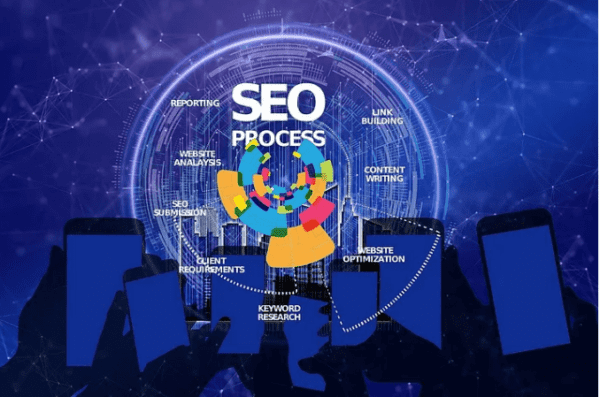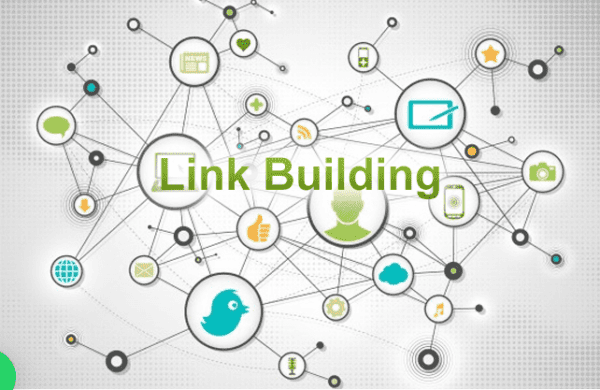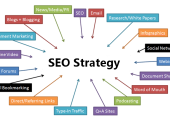SEO for nonprofits come in if you’re a nonprofit looking to increase your visibility and attract more supporters.SEO (search engine optimization) is optimizing your website to increase the visibility of search engine results pages (SERPs). By improving your SEO, you can increase your website traffic, leading to more donations, volunteers, and awareness for your cause.
When it comes to SEO for nonprofits, you should keep a few key strategies in mind. First, it’s essential to understand your target audience and the keywords they’re using to search for information related to your cause. You can use tools like Google Keyword Planner or Ahrefs to research relevant keywords and phrases and then optimize your website content around those keywords.
Another essential strategy is to create high-quality, engaging content that resonates with your target audience. This can include blog posts, videos, infographics, and other content that provide value to your supporters and help build awareness for your cause. By creating content that people want to share and engage with, you can increase your visibility and attract more visitors to your website.

Understanding SEO Fundamentals
Importance of SEO for Nonprofits
SEO or Search Engine Optimization is optimizing your website to rank higher in search engine results pages (SERPs). As a nonprofit organization, you rely on your website to drive traffic, raise awareness, and collect donations. Therefore, it is essential to have a solid online presence that can be found by people who are searching for the services or causes you offer.
By implementing SEO best practices, you can improve your website’s visibility, attract more visitors, and increase your chances of converting them into supporters or donors. SEO can help you to:
- Improve your search engine rankings
- Increase organic traffic to your website
- Boost your brand’s visibility and credibility
- Reach a wider audience and attract more supporters
- Collect more donations and achieve your mission
How Search Engines Work
Search engines like Google, Bing, and Yahoo use complex algorithms to determine the relevance and quality of web pages. When someone enters a search query, the search engine scans its index of web pages to find the most relevant results. The search engine then ranks the results based on a variety of factors, including:
- Relevance to the search query
- Quality and authority of the website
- User experience and engagement
- Mobile-friendliness and page speed
- Backlinks and social signals

Understanding how search engines work is crucial for optimizing your website for search. Creating high-quality, relevant, and engaging content that meets your audience’s search intent can improve your chances of ranking higher in search results.
Related Posts:
Developing an SEO Strategy for Nonprofits
Developing an SEO strategy for your nonprofit can help you increase organic traffic to your website, leading to more donations, volunteers, and overall impact. Here are some key considerations when developing your nonprofit’s SEO strategy:
Keyword Research and Optimization
Keyword research identifies the words and phrases used to search for information about your nonprofit’s mission, programs, and services. By optimizing your website’s content with these keywords, you can increase your visibility on search engine results pages (SERPs) and attract more organic traffic.
When conducting keyword research, consider each keyword’s search volume, competition, and relevance. Use tools like Google Keyword Planner, Ahrefs, or SEMrush to help you identify relevant keywords and assess their potential impact. Once you have placed your target keywords, optimize your website’s content, meta descriptions, and title tags to include them.

Creating Quality Content
Creating high-quality, engaging content is critical to attracting and retaining visitors to your nonprofit’s website. Your content should be informative, relevant, and engaging to your target audience. Creating content that addresses their needs and interests can establish your nonprofit as a trusted authority in your field.
In addition to creating content that resonates with your target audience, consider your website’s user experience (UX). Ensure your website is easy to navigate, loads quickly, and mobile-friendly. These factors can impact your website’s search engine rankings and overall user engagement.
Technical SEO Considerations
Technical SEO refers to optimizing your website’s technical infrastructure to improve its search engine rankings. Some critical technical SEO considerations for nonprofits include:
- Site speed: Ensure your website loads quickly to improve user experience and search engine rankings.
- Mobile-friendliness: Ensure your website is optimized for mobile devices to improve user experience and search engine rankings.
- Security: Ensure your website is secure and uses HTTPS to protect user data and improve search engine rankings.
- Site structure: Ensure your website has a clear and logical structure to improve user experience and search engine rankings.
By considering these technical SEO factors, you can improve your website’s search engine rankings and attract more organic traffic to your nonprofit’s website.

Related Posts:
Building Online Authority and Trust
Building online authority and trust is crucial for nonprofits to achieve their goals. A solid online presence can help increase brand awareness and visibility and attract more donors. This section will discuss two critical strategies for building online authority and trust: link-building and leveraging social media.
Link Building Strategies
Link building is getting other websites to link back to your website. Backlinks are essential in search engine rankings and can help improve your website’s visibility and authority. To build backlinks, you can:
- Reach out to other nonprofits or organizations in your industry and request a link to your website.
- Offer to write guest posts for other websites and include a link to your website in the author bio or within the content.
- Create valuable content other websites will want to link to, such as infographics, research studies, or how-to guides.
Remember to prioritize quality over quantity when it comes to backlinks. Focus on getting links from high-authority websites relevant to your nonprofit’s mission and services.

Leveraging Social Media
Social media platforms can help increase your nonprofit’s visibility, engage with your audience, and build trust. To leverage social media effectively, you can:
- Share your content on social media platforms and encourage your followers to share it with their networks.
- Engage with your followers by responding to comments and messages promptly and authentically.
- Use social media platforms to showcase your nonprofit’s services, impact, and success stories.
- Collaborate with other nonprofits or organizations in your industry on social media campaigns or events.
Remember to keep your social media content consistent with your nonprofit’s brand and messaging. Use social media platforms to build relationships with your audience and demonstrate your nonprofit’s value and impact.

Related Posts:
Enhancing User Experience and Accessibility
As a nonprofit organization, you want to ensure your website is accessible to everyone, regardless of their abilities. Your website needs to be optimized for user experience and accessibility. Here are some tips to help you enhance your website’s user experience and accessibility.
Mobile Optimization
In today’s world, more and more people are using their mobile devices to access the internet. This means that your website needs to be optimized for mobile devices. Ensure your website is responsive to adapt to different screen sizes. Use a mobile-friendly design that is easy to navigate and read on a small screen.
Improving Page Speed
Page speed is an essential factor in user experience and accessibility. A slow website can frustrate users and cause them to leave your site. To improve page speed, you can compress images, minify CSS and JavaScript files, and use a content delivery network (CDN). You can also use Google’s PageSpeed Insights tool to identify areas for improvement.

Navigational Clarity
Navigation is an essential aspect of user experience and accessibility. Make sure that your website’s navigation is straightforward to use. Use descriptive labels for your navigation links so that users know what to expect when clicking a link. Use a consistent layout and design for your navigation menu so that users can find what they are looking for quickly and easily.
Implementing these tips can enhance your website’s user experience and accessibility. This will help you reach a wider audience and make a more significant impact on your nonprofit organization. Remember to test your website regularly and make changes as needed to ensure it is accessible to everyone.
Local SEO and Community Engagement
As a nonprofit organization, engaging with the local community is essential for building support and driving donations. One of the best ways to do this is by optimizing your website for local search. This can help you reach your target audience and increase your visibility in the community. This section will discuss optimizing for local search and engaging with the local community.
Optimizing for Local Search
It would be best to focus on location-based keywords to optimize your website for local search. This means including your city or region, meta descriptions, and title tags in your website content. You should also create location-specific landing pages for each location, if applicable.
Another way to optimize for local search is by getting listed in local directories. This can help you build credibility and increase your visibility in the community. Make sure to claim your listings on Google My Business, Yelp, and other local directories. This will help you show up in local search results and improve your local SEO.

Engaging with the Local Community
Engaging with the local community is essential for building support and driving donations. One way to do this is by hosting events and workshops. This can help you connect with your audience and educate them about your cause. Promote your events on your website and social media channels to increase attendance.
Partnering with other organizations is another way to engage with the local community. This can help you build relationships and increase your visibility in the community. Consider partnering with local businesses, schools, and other nonprofit organizations to increase your impact.
In conclusion, optimizing your website for local search and engaging with the local community is essential for building support and driving donations as a nonprofit organization. Focus on location-based keywords, get listed in local directories, and host events and workshops to engage with your audience and increase your visibility in the community.






